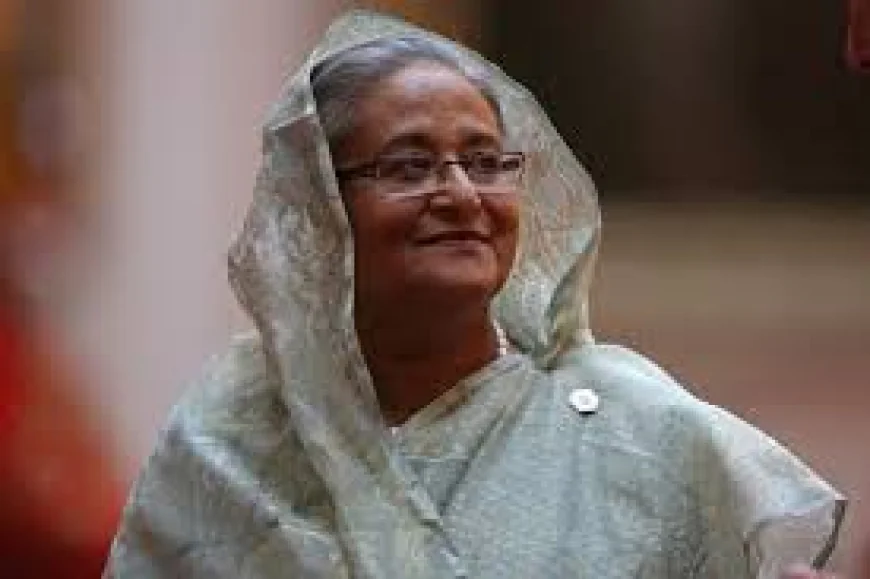Bangladesh Sentences Former PM Sheikh Hasina to Death as Tribunal Rules on 2024 Crackdown
Bangladesh’s International Crimes Tribunal has sentenced former Prime Minister Sheikh Hasina to death after finding her guilty of crimes against humanity linked to the deadly crackdown on student-led protests in 2024. The verdict, delivered in her absence, marks a dramatic chapter in the nation’s political landscape and sets the stage for a contentious appeal, diplomatic tensions with India, and renewed debate about accountability and due process.

A Ruling for the Books
Bangladesh is entering one of the most consequential moments in its modern political history. Former Prime Minister Sheikh Hasina, who governed the country for fifteen years until her ouster in 2024, has been sentenced to death by a special tribunal in Dhaka. The charges stem from the violent response to nationwide protests that erupted last year. The tribunal’s ruling has ignited both relief among families of victims and fierce criticism from political allies and human rights groups.
The Verdict: A Historic Conviction
A three-judge panel of the International Crimes Tribunal found Sheikh Hasina guilty on several counts of crimes against humanity. These include incitement to violence, directly ordering lethal force on protesters, and failing to prevent widespread atrocities during the 2024 student uprising.
The tribunal ruled that Hasina oversaw and directed the deployment of drones, helicopters and live ammunition against demonstrators who were initially protesting civil service quota reforms. She was sentenced to death by hanging, which remains the legal method of execution in Bangladesh.
Two of her closest associates were also convicted. Former home minister Asaduzzaman Khan received a death sentence. Former police chief Chowdhury Abdullah Al Mamun received a reduced sentence after cooperating with prosecutors.
Although the verdict is sweeping and unprecedented, it is not final. Hasina’s legal team retains the right to appeal to the Supreme Court of Bangladesh.
Events That Led to the Trial
The 2024 Student Uprising
The protests that triggered the crisis began as student demonstrations over job quota reforms in July 2024. What began as a policy dispute rapidly escalated into a national uprising fueled by years of frustration over authoritarianism, enforced disappearances, media repression and police abuses.
The government’s response was exceptionally violent. Rights groups estimate that as many as one thousand four hundred people may have died, while government sources have acknowledged several hundred fatalities. The scale of the crackdown shocked the international community and fractured the political establishment within Bangladesh.
Crackdown Orders and Alleged Direct Involvement
Prosecutors presented evidence that Hasina not only failed to restrain security forces but also actively ordered the use of heavy weaponry, including surveillance drones and aerial fire, on civilian gatherings. The tribunal reviewed statements suggesting she referred to the protesting students using derogatory historical terms, which further inflamed tensions and signaled a hard-line stance.
Flight to India and Trial in Absentia
In August 2024, as the uprising reached its peak and the administration began to collapse, Hasina fled to India. She has remained there since. Her trial continued without her presence, a process that her supporters argue violates fair trial principles. They describe the tribunal as politically motivated and lacking legitimacy under the current interim government.
A Tribunal With a Controversial Legacy
The tribunal used for this case was originally established during Hasina’s own tenure to prosecute war crimes from Bangladesh’s 1971 independence conflict. Its repurposing to try her for contemporary crimes has divided legal experts.
Supporters argue that the tribunal was the appropriate venue to pursue justice for mass atrocities. Critics contend that its procedures do not always align with international standards and that its use in a politically sensitive case risks undermining public confidence.
Reactions Across Bangladesh and Beyond
Security on High Alert
Dhaka was under heavy security on the day of the verdict. Police and armed forces were positioned across the capital to prevent unrest, though early reactions appeared relatively contained.
Relief and Anger in Equal Measure
Families of victims expressed emotional relief after the ruling, describing it as long-awaited justice. However, Hasina’s party, the Awami League, denounced the judgment and called the tribunal a politically influenced body. Protests are expected in the coming days, and clashes remain a concern.
International Response
Human rights organizations praised the recognition of victims but criticized the imposition of the death penalty. The United Nations expressed a mix of support for accountability and concern over capital punishment.
Diplomatic attention now turns to India, which hosts Hasina. The verdict raises questions about her possible extradition, a move that could become a sensitive geopolitical issue.
What Happens Next
The next significant step is the appeal to the Supreme Court, which could either uphold or overturn the verdict. Meanwhile, Bangladesh is preparing for elections in early 2026, and the political climate is already deeply polarized.
The ruling has the potential to reshape Bangladesh’s political trajectory. Whether it brings closure or triggers renewed instability will depend on how the country navigates the legal, political and social fallout in the months ahead.
Sources :
The Guardian/ The Financial Times/ The Times of India


